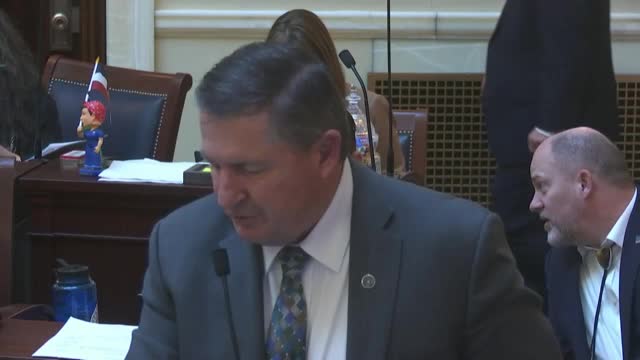Senate adopts third substitute to incentivize battery-backed commercial wind and solar; 6-hour storage standard included
Get AI-powered insights, summaries, and transcripts
Subscribe
Summary
The Senate adopted a third substitute to SB 192 establishing battery backup requirements (6 hours) for eligible commercial wind and solar projects and exempting projects already permitted by May 1.
The Utah State Senate adopted a third substitute to First Substitute SB 192 to change incentives for certain commercial wind and solar projects by adding battery storage requirements and protecting projects already permitted.
Senator Owens, sponsor of the bill, said the measure stems from an Energy Working Group and seeks to shift incentive design to favor projects that include battery backup. The third substitute adds language that exempts projects that already had permits by May 1 and introduces a battery storage metric tied to "peak daily generation" and a six-hour firming standard.
"As we're trying to incentivize that at the peak load that, these systems can add it's called firming," Owens said, explaining the intent to pair renewable generation with storage so systems can supply base load power rather than solely intermittent output. Owens said the bill originally proposed 12 hours but was adjusted to a 6-hour standard as that is becoming more common in the market.
Senator Kwan questioned the definition of "system's expected peak daily generation" and whether six hours had been part of previous negotiations; Owens said the six-hour battery storage figure is in the bill and helps the system work through and beyond peak demand periods, often occurring around early evening when household demand rises.
The Senate approved the third substitute and then recorded a roll-call reading vote for third reading: 23 yea, 0 nay, 6 absent. The substituted bill was ordered to be read for a third time.
Why it matters: The change steers incentives toward renewable projects that include on-site battery storage to firm supply during peak demand hours, while preserving existing permitted projects from new rules.
Votes at a glance: Third substitute SB 192 — Read for third time; recorded tally: 23 yea, 0 nay, 6 absent.
Next steps: Third Substitute SB 192 was advanced to third reading; implementing language and eligibility rules will be applied consistent with the substitute.
